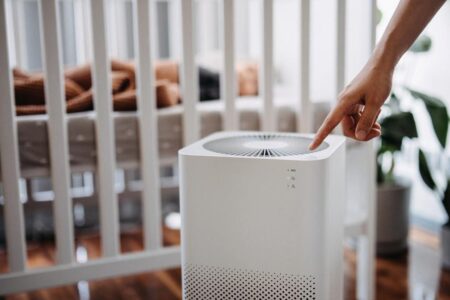The global anti-ageing market is rapidly expanding, driven by demographic shifts and new biotech breakthroughs. According to Grand View Research, the industry was valued at over $50 billion in 2024 and is projected to continue growing as aging populations seek to extend both lifespan and healthspan. Needless to say, big breakthroughs in the industry in the coming decades could skyrocket these numbers further.
While the field is highly technical and usually very capital-intensive, which makes it a hard field for early-stage startups to enter, the sheer potential for positive impact and financial upside more than compensates for those difficulties. Moreover, considering the wide-ranging positive externalities of anti-ageing, governments are likely to provide various types of public funding and support for the field.
Startups are entering this space with innovations in biology, data, and personalized health. Here are eight opportunities for founders to build high-impact ventures in anti-aging.
1. Gene Editing Therapies
Startups can focus on developing gene-editing treatments that target age-related decline at the DNA level. Tools like CRISPR allow for direct intervention in genes related to cell repair, inflammation, and longevity.
Companies like Rejuvenate Bio are already exploring gene therapy applications in aging. Opportunities exist to create therapies that enhance DNA repair pathways or modulate longevity-associated genes like FOXO3 or SIRT6.
A new startup could focus on partnering with academic labs to license discoveries and bring them into early-stage development. Specializing in rare, aging-related conditions could offer an initial regulatory path while building IP around gene delivery mechanisms or safer CRISPR variants.
2. Senolytics And Cellular Rejuvenation
Senolytic drugs clear senescent (non-dividing) cells that accumulate with age and drive inflammation. Early studies have shown that removing these cells can improve tissue function and extend healthspan in animal models.
Startups can screen and develop plant-based or synthetic compounds for senolytic activity or develop delivery platforms that improve drug precision. Unity Biotechnology is a leading example, but the space is still early and ripe for newcomers.
3. AI-Powered Longevity Drug Discovery
Artificial intelligence is accelerating how quickly new longevity drugs are discovered and tested. Platforms that use AI to predict molecule-target interactions, simulate trials, or analyze aging biomarkers can be powerful tools for biotech firms.
Startups like Insilico Medicine are leading this approach, and there’s still room for others. A startup can build a SaaS or platform model that uses machine learning to map interactions between known molecules and aging pathways, offering it as a tool to larger pharma companies. Alternatively, it could develop a proprietary pipeline of compounds discovered using its own platform and seek licensing deals.
4. Microbiome Optimization
The gut microbiome influences immunity, metabolism, and inflammation — all key factors in aging. New companies are developing diagnostics and interventions that personalize gut health to slow age-related decline. This includes tailored probiotics, engineered microbes, or fecal microbiota transplants.
Pendulum Therapeutics, which targets metabolic health through microbiome modulation, is an example of what’s possible.
A new startup, for example, could create at-home microbiome test kits, partnering with probiotic manufacturers to offer microbiome programs that target energy, immunity, or skin health in older adults.
5. Wearables Аnd Biomarker Tracking
Tracking biological age and other longevity biomarkers is a growing category. Founders can build products that continuously monitor things like glucose variability, inflammation markers, sleep quality, and stress.
Devices like the Oura Ring and Levels continuous glucose monitor are already on the market, but many age-related biomarkers (like epigenetic age or protein profiles) are still underserved.
6. Personalized Longevity Platforms
No single anti-ageing solution fits everyone, so there is demand for platforms that aggregate user data and generate tailored plans. These might include blood test analysis, DNA sequencing, lifestyle tracking, and supplement recommendations. InsideTracker and Elysium Health are building in this direction. New ventures could differentiate by focusing on underserved demographics or integrating more complex biological signals like epigenetic clocks.
7. Regenerative Therapies Аnd Tissue Engineering
Lab-grown tissues and regenerative therapies can help replace or restore aging organs and systems. Startups can explore organoid-based drug testing, 3D-bioprinting for tissues, or stem cell therapies for muscle, skin, or neural regeneration.
The field is capital-intensive but has long-term potential. AgeX Therapeutics and Organovo are working on foundational technologies that could inspire new spinoffs.
8. Cognitive Health Аnd Brain Longevity
Cognitive decline is one of the most feared consequences of aging. Startups can develop neuroprotective interventions, ranging from nootropic compounds and digital therapeutics to diagnostic tools for early detection of cognitive deterioration.
AI-driven tools for memory training or brain imaging analysis are also promising. Companies like Neurotrack and MindMaze show how this space is evolving.
Read the full article here











